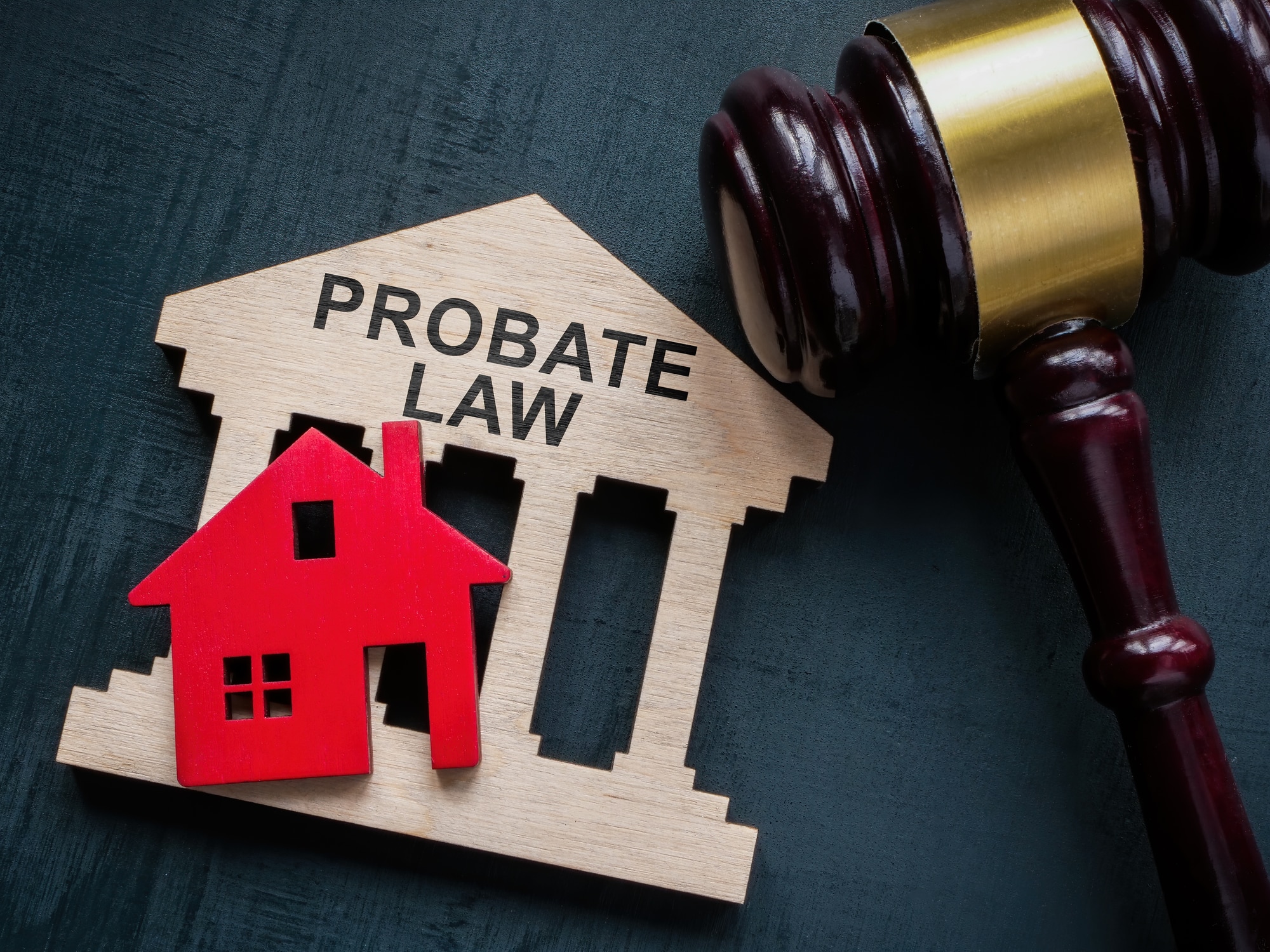Hello and welcome to trusted. This is the podcast where we talk about all things that involve trusting others, especially attorneys. I’m your host, Blake Johnson. I’m an estate planning and business attorney as well as an Trust Attorney Las Vegas entrepreneur. Today we’re going to continue to talk about ways to transfer assets that death, uh, without having to go through the probate court. Specifically, we’re going to talk about joint tenancy and what that all involves. So when you own a property or asset in joint tenancy, uh, this means that you own it with another person and all of your rights are the same, so you’re equal on it. Uh, the most typical way you see this, uh, is a husband and wife who are both owners on a bank account or they’re, they’re both owners on their house. And, um, the way it works, that says their joint tenants with rights of survivorship.
So what that means is when one of them dies because they are joint owners, the account or the house or whatever it is, goes straight to the survivor. As soon as they can show the bank, are they the county recorder or whoever the, the administrator of that account is, um, a copy of a certified death certificate. They show that to them. They usually have to sign a document and then they become the sole owner of that property. And so in this situation, uh, let’s say, assuming that the husband dies first and he wanted the house to go all to his spouse and to his wife, it works out perfectly. This is one of those situations where it can be a good, simple cost effective way to transfer assets upon your death. Uh, but this is not always the case. There are actually a lot of problems with joint tendency.
And so I want to go through those one by one. So let’s keep the same situation that we had before where a husband and wife on, uh, let’s say it’s a house together and a husband dies first. So, uh, with let’s say after husband dies, wife doesn’t change anything. She doesn’t do anything. When she passes away. Now the house has to go through probate to go to their kids because she’s the sole owner on their sheet and put anybody else on that sheet and put it in a trust or anything like that. So really in this situation, joint tenancy really just delays probate, it doesn’t fix it. It’s not the end all solution. Um, or we have this situation where husband and wife die at the same time. You have the possibility of having to do to probates because they both have a 50% interest in the house.
Uh, now most states, that’s probably not going to be the case because what you do is they have a law that says, um, you know, if they have a die within, you know, a certain period of time, then we’re going to deem that husband or wife died first. And then that way you could have a golf go twice. You can only have to do one probate for wife’s estate. Uh, but it’s not necessarily true. So, um, you know, you may have a possibility of creating two probates by having joint tenancy. Um, you know, or let’s say you have three owners and you’d have three probate, so it can become really complicated at that point. Uh, we also have liability issues. So keeping that same situation, let’s say husband and wife, uh, they think they’re being smart. They’re like, okay, we’re going to put our son on, um, on the houses, joint tenants with us so that if we die, um, then it goes to him and he can then, you know, uh, have control of the house.
And that is true. If, if they both died, then it would go to sun and he would have full, full ownership of the house at that point. The problem is, is let’s say that son goes and he gets in a car wreck and he gets sued and he’s found to be at fault and it’s for $1 million. Son Doesn’t have any assets. Well, yes he does now because his house is on Ma or his name is on mom and dad’s house. And so that house would be subject to that lawsuit. So mom and dad could lose their house because son gotten a loss or gotten a car wreck and it was his fault. Not An ideal situation, not super likely, but you know, we live in a litigious society. So you know, you tell me, is it, is it really that unlikely? I would say not.
Um, so you know, we really not, not great to do that. Um, the other problem is, let’s say it’s a, it’s a bank account and you put sun on as a, as a joint owner of that account. Well guess what? He can go liquidate that account and pull all the money out and you have no recourse against him because he’s a joint owner on the account. That bank can’t, can’t deny him that because he’s a joint owner so they could steal from you and the other problems you also lose, you have loss of control. So let’s go back to the house situation. It’s the three of them on the house. Mom and dad want to sell the house. They want to downsize or they need money to help fund their retirement and son says, no, I don’t want to sign the deed because you have to get him to sign.
The deed is a joint owner. Now he says, I’ll send the deed when you give me $50,000 and you know, now you’re held hostage in that situation. Not a great way to do that. Or you know, if it goes, he go. And as far as saying, no, I want a full one, third value of the whatever the proceeds are from selling the house and he’s entitled to them because you gifted him and ownership in the property. So not really great to give up your ownership or your lot. You’re giving up control and the possibility of getting it stolen from you. Um, another problem with joint tenancy is you can disinherit people. Uh, having joint tenancy circumvents whatever your will or your trust says if the will or if it’s not just in your name or if it’s a not owned in a trust, then we have to go by default law which says that if it’s joint tenancy, it goes to the joint tenants.
So let’s say even if you had an a trust that it’s, it goes, you know, for your wife’s benefit, she gets, you know, to live in the house until she dies and then it goes to the kids. Well if its own jointly, it’s all going to go to wife and she can do with it whatever she wants. It doesn’t have to be what it says in your trust unless the trust owns the property. And as far as disinheriting kids, let’s go back to the situation where a husband wife had that had owned the house. They put sun on it, but they have two other kids. They just put the oldest son on there. Uh, because he’s the most responsible they think or they just don’t want to complicate it and put all of them on there and they think, oh well we trust him. He’ll get, he’ll make sure that he’ll give a share to his siblings.
And most of the time that is going to be the case. They’re going to be a good kid. They’re going to share the proceeds with their siblings, but he doesn’t have to. So he could go after you mom and dad, die, go sell the house, keep all the money. He could go live in the house and nobody has any recourse against him because he is the sole owner at that point. There is nothing that his siblings can do to make him give up. Uh, you know, two thirds of that house to them. Um, another issue we have is tax issues. So when you die, anything that is inherited from you by your kids or your spouses or anybody, they get what’s called a step up in basis from a tax perspective. And what that means is when you buy a property, let’s say you bought it for 100,000 that’s your basis.
And so any growth that happens above that 100,000 now I’m not talking about your personal Trust Attorney Las Vegas residence cause there’s other exclusions and that stuff. So let’s say it’s an investment property. It’s a rental property. You bought it for 100,000 and you sell it in 10 years for 200,000 your gain is 100,000 so you take the 200 what it’s worth now minus what you paid for it, that’s what’s taxable. And so the bottom line, what you paid for it, that’s called our tax basis. Now when you, let’s say instead of selling the house, you died and then the left the house to the kids, they’re new basis is 200,000 so if they turn around and sold it the next day, they would pay no capital gains on that property. So really ideal to get a property through inheritance, whether that’s through a will or through a trust or you know, however they get through inheritance.
That’s, that’s the case now situation where mom and dad have the house put sun on as a joint owner. His basis is whatever mom and dad’s basis is now. So let’s say the situation, mom and dad both die. They were joint tents. They left the house to son, he sells it and it’s worth 200. Mom and dad paid a hundred for it. He has to pay the hunter the gain or the tax on that 100,000 of gain because he got it as a joint tenant versus getting it through inheritance. So that’s why it can be important to make sure that we give things to our kids in the right way or to our heirs or how are whoever it is. So those are some, some of the bad sides of joint tendency. Like I said, it can be good in certain situations. It only delays probate.
Uh, but really the best option is to put all of your assets, your property, your accounts, you know, um, your rental properties, whatever it is, into a trust, a living trust. And then that way you maintain control because you’re the trustee of the trust. You protect the property from, you know, your kids and getting students and whatnot. You’re, you’re not protected from your, you know, lawsuits. So if you get sued that the house would still be centered. But if the kids do, they just because they’re named as a beneficiary doesn’t mean that, that the creditors can come after them.
And then, um, you know, if you, uh, if you put it in a trust, you give it, you make sure it goes to the right people. He makes sure it has the right restrictions on there, um, and you do it in the right way. And it is definitely the most tax efficient manner of doing that. So, you know, really, yeah. If you have, if you have any property, if you own a house, um, if you have, you know, over a significant amount of cash or other accounts, talk to a state planning attorney, make sure that you have your assets owned by a Trust Attorney Las Vegas, or at least that they, they advise you the right way to distribute your estate. Don’t just rely on, um, you know what the default rule is because it’s joint tendency or because you named a beneficiary. We want to make sure that the things that your assets go to the right people in the right way and the most tax efficient manner possible. So thank you for listening in today. Hope you enjoyed it, and we’ll talk to you next time.




